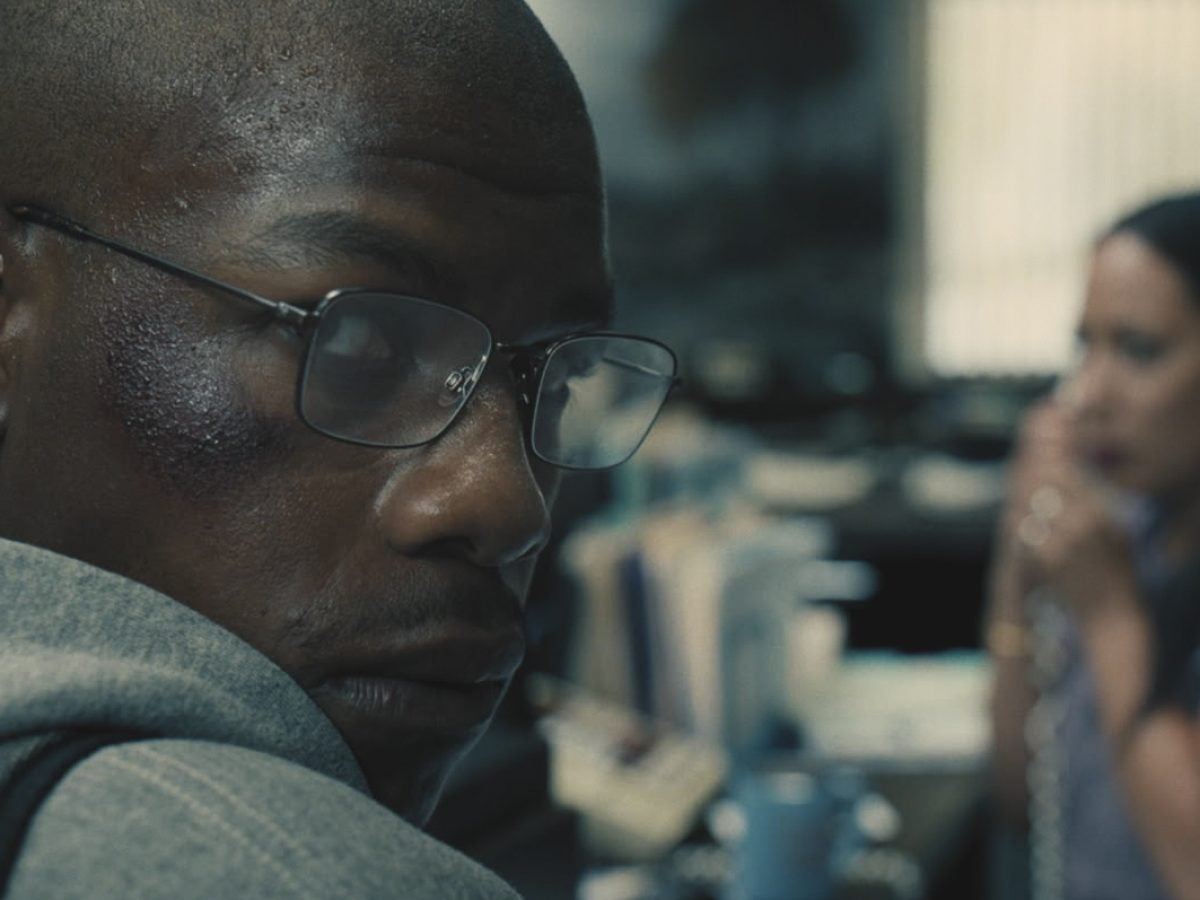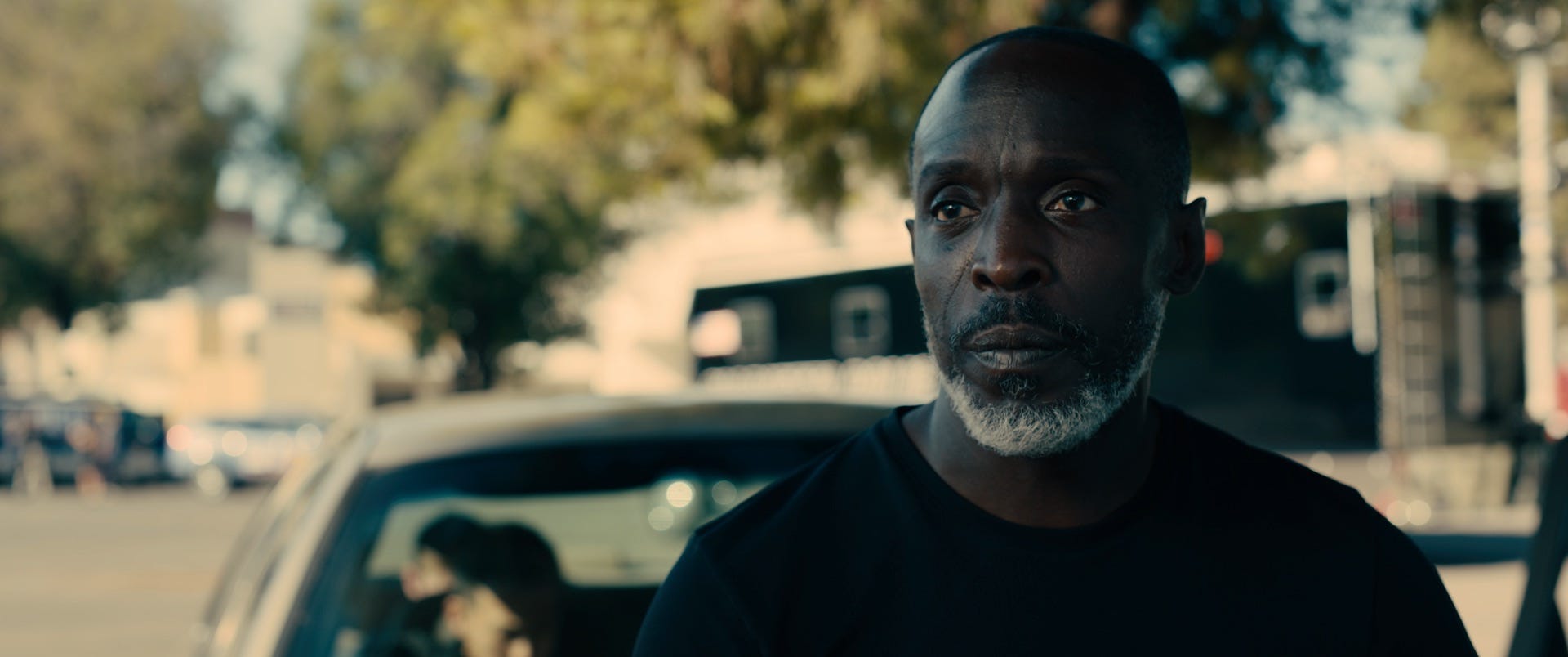
“They Didn’t Have to Kill Him.” That’s the name of Aaron Gell’s 2018 article on which Abi Damaris Corbin’s debut feature film 892 is based. The hauntingly dark film centers on the real-life story of Lance Corporal Brian Brown Easley, who on a July day in 2017 walked into a Wells Fargo bank based in the suburbs of Atlanta and held it up, taking several hostages. In a stunning performance actor John Boyega, steps into the shoes of the desperate former Marine who, having exhausted all of his resources, made a desperate choice to get the money owed to him.
The nightmarish red-tape that runs through the Department of Veterans Affairs is well known. Still, in focusing on Brian, Corbin puts a face to just one of numerous veterans who served this country and are now left to flounder with food and home insecurity, as well as mental illnesses. It is a situation continually brought to the forefront of society that has never been truly addressed.
892 opens the night before Brian decides to rob the bank. Using a prepaid phone that is quickly running out of minutes, he makes his nightly phone call to his precocious young daughter, Kiah (London Covington). Later, Brian walks to his motel room, where he tinkers with some wires and what appears to be a detonator.

The following day, Brian makes his way to the unassuming Wells Fargo where he makes small talk with the chatty teller, Rosa Diaz (Selenis Leyva), before handing her a piece of paper that states he has a bomb. From there, at least within the bank, things move quickly. While Rosa freezes in fear, the branch’s manager, Estel Valerie (an astounding Nicole Beharie), is spurned into action, clearing the bank of customers and remaining employees and getting a hold of the police.
Brian’s desperation is clear, and the audience is made privy to all of the avenues that he’s exhausted to obtain his money. As a result, he’s a sympathetic character from the beginning of the film. Boyega is absolutely gripping in his performance of the Iraq war veteran suffering from PTSD, paranoia, and schizophrenia. His moods change from anguish to rage on a dime, but it’s clear he’s not a violent threat. Though terrified, both Rosa and Estal treat him with care and humanity, and in turn, he is a gentleman, ensuring their safety while trying to explain to them how he’s come to this heart-breaking decision.
Aside from the compelling performances, 892 is mostly a cookie-cutter police hostage drama. However, what’s striking here is the inaction of the police. Though the 911 operators assure Rosa, Estel, and even Brian that they are on their way, their negligence about the entire ordeal is painful. The media even gets an inside scoop into the story before the police intervene in any real way. When the police finally do take action, hostage negotiator Eli Bernard (the late Michael K. Williams) appears to be the only one taking the incident seriously.
Eli, determined to get Brian out of the situation without being killed, establishes a rapport with the young father based on their shared experiences in the Marines and a firm but committed truth. In one of his final film roles, Williams offers compassion, understanding, and empathy while the rest of the police department flounders. With all of their tanks, guns, and technology, nothing of substance is done to deescalate the situation.
In the end, Brian was always a marked man; the urging from Eli, Rosa, Estel, and even a reporter from a local TV station (Connie Britton) couldn’t save him. 892 is a commentary on America’s failed police state (everyone from the local police to the FBI is guilty here) and government institutions. When all is said and done, the film ends on a tragic note with the death of a Black man over $892.32.
892 premiered at Sundance Festival Jan. 21, 2022.





